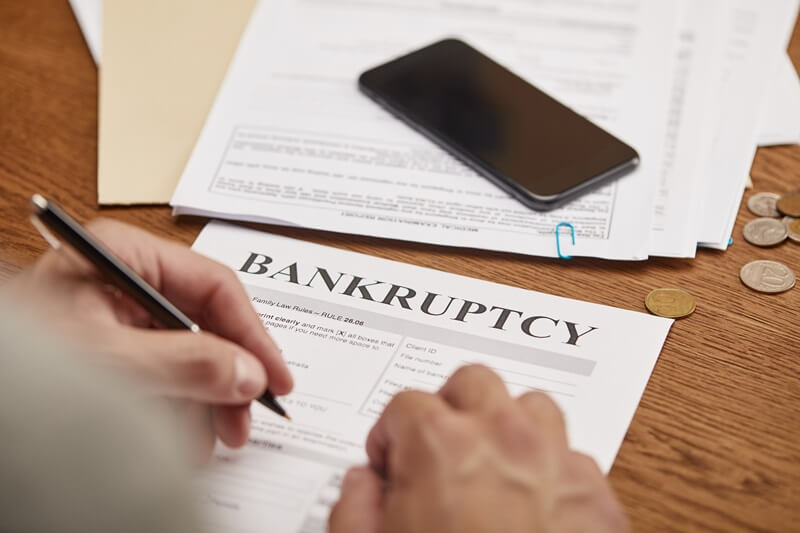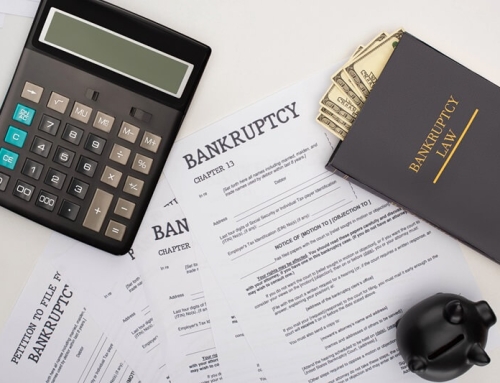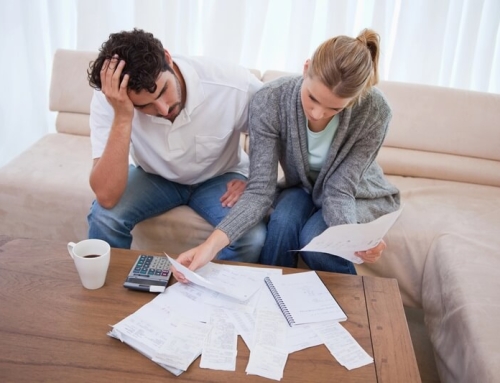Can You Sell Your House After Filing For Chapter 7 In Texas?
Texas homeowners considering or filing for Chapter 7 bankruptcy often worry about their property. Will you be able to keep your home, or is selling it an option? Knowing how bankruptcy impacts your ability to sell your house is essential for protecting your financial future.
This article offers essential guidance on deciding whether you can sell your home after bankruptcy. Discover how Texas laws protect your residence, what occurs after your discharge, and how soon you can sell it.

How Chapter 7 Bankruptcy Affects Asset Exemptions In Texas?
Chapter 7 bankruptcy offers individuals a fresh financial start by eliminating unsecured or non-collateral debts like medical or credit card bills. During the process, your properties are reviewed to determine which can be used to pay creditors. While Chapter 7 delivers debt relief, understanding which of your assets may be at risk becomes critical.
Texas bankruptcy laws provide exemptions that protect certain properties from being sold to settle your obligations. The state offers substantial asset protection, allowing many to keep significant property, including their homes.
The Texas homestead exemption provides essential protection for homeowners. It allows you to protect an unlimited amount of primary residence equity from most creditors, regardless of your property’s value. This exemption benefits those filing for Chapter 7 bankruptcy, as it prevents the forced sale of your home to pay off debts.
The homestead exemption applies to up to 10 acres of land for urban properties. In rural areas, it covers up to 200 acres for a family and 100 acres for a single adult. These protections ensure homeowners can keep their homes while they recover and stabilize financially.
Understanding how Chapter 7 bankruptcy and Texas exemptions safeguard your home is essential for navigating the process confidently. This approach can clarify what happens to your home after the covered debts get discharged.
What Happens To Your Home After Filing?
In Chapter 7 bankruptcy, a court-appointed trustee reviews your assets to determine what can be sold to repay creditors. They ensure the process follows legal guidelines and remains fair for all parties. This impartial figure can liquidate non-exempt assets but cannot touch those fully protected under Texas law.
Your home remains protected if you correctly claim the exemption and it meets the size and acreage limits. The trustee cannot sell it to pay off unsecured debts, keeping it out of the liquidation process.
However, if your home’s value exceeds the exemption limit, the trustee may seek to liquidate it to pay off debts.
Once you receive a Chapter 7 discharge, your ability to keep your home depends on factors like your mortgage status. While the discharge eliminates liability for many unsecured debts, it doesn’t remove secured debts like your mortgage.
If you’re behind on payments, your lender can still foreclose on your home despite the discharge. Bankruptcy may protect your home from being sold by the trustee, but keeping it requires staying current on mortgage payments to prevent foreclosure.
Additionally, liens or legal claims placed on your property before bankruptcy remain after discharge. If you choose to sell your home, you’ll likely need to resolve any outstanding liens to clear the title.
Keeping ownership after discharge depends on addressing financial obligations tied to the property. These factors may also influence your ability to sell the house later.
Is Selling Your House Possible After Chapter 7?
Yes, you can sell your house after Chapter 7 bankruptcy, but you must wait until the case officially closes. Although the discharge may occur quickly, closing the bankruptcy case can take longer, depending on asset complexity and the trustee’s liquidation. Waiting for the case to close ensures the trustee has no legal claim over the sale proceeds.
Managing Mortgage
If your home survives the bankruptcy process and you still own it, you must continue making mortgage payments after filing for bankruptcy. If your financial situation remains unchanged and the lender doubts your ability to meet mortgage obligations, they may start foreclosure proceedings to sell the house.
However, lenders often find foreclosures costly and time-consuming, so many refrain from proceeding. If they do not follow through, you may have an opportunity to sell the property yourself, allowing you to regain some control and avoid foreclosure.
Selling Scenarios
Two scenarios may arise once you find a potential buyer for your home. First, if the buyer offers enough to cover your remaining mortgage balance, the sale proceeds will satisfy any remaining debt tied to the property. If you have equity in your home, you may even walk away with a small profit despite the bankruptcy.
Second, if the buyer’s offer does not cover the entire mortgage balance, you can negotiate a short sale with your lender. A short sale allows you to sell the home for less than what you owe on the mortgage, with the lender agreeing to forgive the remaining debt.
You will not be personally liable for the difference since you have already received a Chapter 7 discharge. Sometimes, lenders may also offer a short sale incentive payment as a bonus for cooperating in the sale process.
Even if these scenarios appear straightforward, consult a local Chapter 7 bankruptcy attorney to avoid costly mistakes. Achieving a smooth sale after bankruptcy requires comprehensive and tailored legal guidance.
What Happens To Post-Bankruptcy Home Sale Proceeds?
When you sell your house after Chapter 7 bankruptcy, handling the sale proceeds depends on Texas’s homestead exemption and the home’s equity. Understanding these rules helps avoid being left in the dark, especially if your property exceeds the exemption limits.
Homestead Exemption & Sale Proceeds
The homestead exemption in Texas protects your home equity during and after bankruptcy. If you sell your house after the process, you can keep the proceeds under the exemption amount. However, this can only be possible if you reinvest those funds into purchasing another home within six months of the sale.
For example, if you sell your exempt home, you must act quickly and buy a new residence within six months to protect the proceeds. If you fail to reinvest the money within this timeframe, the trustee may claim those proceeds for creditors.
Distribution Of Excess Profits
If your property exceeds the allowed exemption limits, creditors and bankruptcy proceedings can claim the excess portion. For instance, if you own a rural homestead of 150 acres, only 100 acres will receive protection under the homestead exemption.
You must give the trustee any proceeds exceeding the homestead exemption limit. They will then distribute these funds to pay off your creditors. This process balances the fresh start that bankruptcy provides with the creditors’ rights to recover some of the money owed.
Understanding how the sale proceeds are handled can help you avoid surprises later. By planning and knowing the risks involved, you can evaluate whether selling your property is the right choice.
What Factors Should You Consider Before Selling?
Deciding to sell your home after Chapter 7 bankruptcy involves more than just timing. You need to consider several important factors before proceeding. These factors significantly impact whether selling your home is more favorable for you.
Post-Bankruptcy Financial Situation
Are you in a better position after bankruptcy, or do challenges persist that could make selling your home less beneficial? Consulting with a Chapter 7 bankruptcy lawyer can help determine if selling will improve your financial stability or if keeping your home makes more sense.
Tax Implications
Selling your home may have tax consequences, especially if you have gained equity since filing for bankruptcy. You may incur capital gains taxes based on the profit you make from the sale. Before listing your home, understanding how property value assessments and other tax issues could affect your finances is vital.
Property Title
Before selling, confirm that your property title is clear of any liens or unresolved debts. Even if you’re working with the best Chapter 7 lawyer, lingering issues with the title can complicate your post-bankruptcy house sale. A clean title will streamline the process and help prevent unnecessary delays.
Future Financing
Your credit report will show the Chapter 7 bankruptcy for up to 10 years, affecting your ability to secure future financing. If you plan to sell your home to buy another, evaluate whether you can obtain a favorable mortgage rate. Lenders may view your bankruptcy negatively, so improving your credit score before seeking new financing is vital.
Carefully considering these factors enables you to make an informed decision about selling your home after discharge. Having a legal ally to assess these details gives you an advantage. A skilled Chapter 7 bankruptcy law firm can guide you through your situation.
How Can Austin Bankruptcy Lawyers Assist You with Chapter 7?
Selling your home after weathering the storm of a Chapter 7 bankruptcy introduces a fresh set of hurdles to navigate. Austin Bankruptcy Lawyers provides straightforward, actionable advice tailored to your situation. We guide you through your options and the necessary steps, ensuring you stay informed and prepared.
With extensive experience in Texas bankruptcy law, we help clients maximize their opportunities while complying with legal requirements. Whether selling your home or addressing other post-bankruptcy concerns, we provide the guidance needed to avoid complications and ensure a smooth process.
At Austin Bankruptcy Lawyers, we stand by you, protecting your interests and helping you achieve the most favorable outcome. Our dedicated legal team offers personalized support so you can confidently move forward, knowing your legal rights are protected.
Filing Chapter 7 bankruptcy in Texas and receiving a discharge does not prevent you from selling your house but requires careful planning. Understanding the state’s homestead exemption can help you make informed decisions. Before listing your home, consider your financial situation, tax implications, and future financing options.
Skilled and knowledgeable Chapter 7 attorneys ensure you see the bigger picture during this challenging time. With extensive experience, Austin Bankruptcy Lawyers effectively guides you through decision-making. We can also help you determine a suitable option for your situation.
& Let’s Discuss How We Can Best Help Eliminate Your Specific Financial Struggles!





